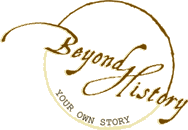International Mother Language Day
- 17. February 2016 - Anniversary, General, Historical Events, Knowledge, Traditions
According to the German dictionary, the term "first language", or "mother tongue" describes "a language that a child learns (from its parents) [and that it uses primarily]". Hence language is a cultural good that is part of us from an early age on and that makes us part of a family or community.
But all languages are not created equal: while doing genealogical research you discover that language and scripture change over time, new meanings develop for certain terms or they disappear from the language usage completely. While doing genealogical research, we often come across terms which are dated: In case our ancestors got married in the 19th century, they arranged a “copulation” [marriage]. At a christening feast there were „Gevatter“ [godparents] standing at your side.
Furthermore in each language area there are several dialects and regional vernaculars that make a language diverse.
Whereas the German and other languages change due to these influences, other languages are in danger of disappearing completely: According to the UNESCO, half of the about 6000 languages spoken worldwide are at risk of extinction. For calling attention to this progress and for preserving linguistic diversity, the United Nations and the UNESCO proclaimed the 21st February to be the "International Mother Language Day". This memorial day has been celebrated since the year 2000.
Selecting the date was determined by historical reasons: in the mid-20th century, the Pakistani ascendant class of society spoke a language called Urdu whereas the majority of the population in West and East Pakistan owned up to Bengali as their first language. After the government had decided to pick Urdu as the official language, the people tried to preserve Bengali by focusing their protest in a language movement. On 21st February 1952 there was a march in Dhaka, which was the capital of East Pakistan back then. During these disturbances several people died.
The cultural oppression towards the people of East Pakistan took a long time since then. Finally in 1971, after a civil war East Pakistan gained independence from Pakistan and it became East Bengal, after that it achieved statehood as Bangladesh - there Bengali still is the most spoken language.

0 comments